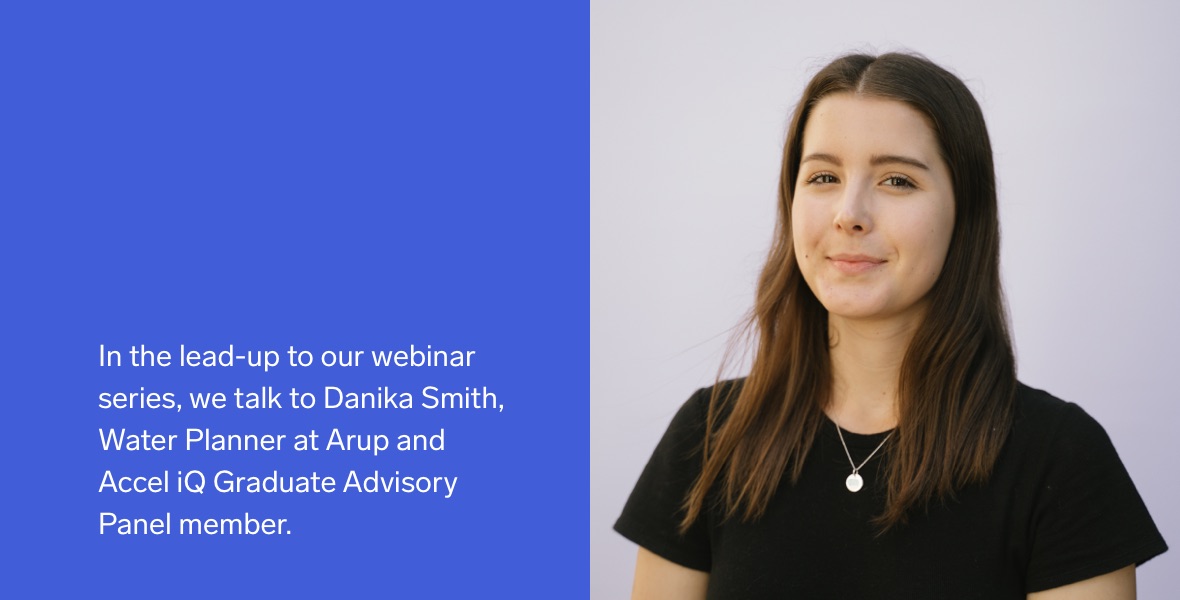From drought-affected rural NSW to a career in water engineering
20 Sep 2022
20 Sep 2022

Currently, Arup is working alongside Aurecon for the Sydney Water Planning Partner project. “About 80% of the work I’m doing at the moment is for Sydney Water, and it’s in the planning phase,” says Smith. “It’s early-phase, some of the projects are feasibility assessments or analysing growth data to work out where we need to plan to put more water infrastructure. We’re not really even designing things yet, we’re kind of deciding whether things need to be designed.”
Though she was long interested in a career in engineering, water wasn’t always the goal.
“I didn’t necessarily start out studying engineering wanting to go into water, I was a bit more focussed on the environment and sustainability side of things,” Smith says. “Then when we had a few water courses at uni I really connected with them because I grew up in a rural area that was quite affected by the millennial drought – I could connect with that and visualise it and that’s what got me first interested in it.”
Smith completed high school in Bathurst in rural New South Wales. Like many students, she didn’t always know where she’d end up, but followed her strengths and interests. “I would have said I was always interested in the STEM fields, I think I was naturally quite good at maths and was interested in science and just got excited about science things,” Smith says. “I don’t think I was interested in engineering until I was in Year 11 and 12.”
In Year 12, Smith took 4 unit mathematics, physics and chemistry. With high school drawing to a close, Smith set her sights on a Bachelor of Environmental Engineering at UNSW. “I had a goal to get into that course and get the ATAR which I did, which I think was 91 at that time,” says Smith. “I had no particular aspirations to get a 99 or anything like that, I just more wanted to get into the course – that was more important to me.”
For those moving into STEM careers, Smith says that the most important thing to take from high school is developing good study techniques. “Study techniques and learning how to study by yourself and motivate yourself was something I learnt a little bit more in year 11 and 12,” Smith says. “I went to a rural public school so I did a lot on my own and a lot of study by myself, and that is stuff I see that really helped me out in uni.”
Smith received a scholarship for her university studies, and credits that success to balancing school work with extra-curricular activities. “If you’re into sport or you’re into music or you’re really involved in the school leadership team, keep that sort of stuff,” Smith says. “If you want to get a scholarship, that’s the sort of stuff that will help you. That’s what I did. I was super involved in my school and then got a scholarship.”
Progressing to university, Smith found the first three years of study to be a combination of general skills and knowledge, but it was fourth year that most equipped her for employment. “There’s a certain element in years 1, 2 and 3 that you’ve got to just learn the content, you’ve got to understand it,” Smith says. “Then the fourth year is applying that content and learning how to write a professional report and present your findings and things like making assumptions, which you don’t really do in second and third year.”
For Smith, there are more important things to take from university than grades, too. “The thing that you should be focusing on getting out of uni is problem-solving, it’s time management – more those soft skills,” says Smith. “That is what you’re really going to use in the workplace.”
The thing that you should be focusing on getting out of uni is problem-solving, it’s time management – more those soft skills."Danika Smith, Water Planner – Arup
Taking advantage of internship opportunities was important to Smith’s transition into employment. She did two water-based internships – one organised through a course coordinator at university, the other over summer break between her third and fourth years. The second internship, with Arup, ended up progressing into a career.
Smith now helps recruit students for the same sorts of internships she did with Arup, and has some advice for those looking to follow her lead. “Part of what got me across the line was that I had this previous experience and could show that I was interested in the area,” says Smith. “If you have any kind of experience in relevant areas, that’s kind of almost a tick next to your name. And it doesn’t have to be loads of experience, we’re not sitting there looking at how long you’ve worked for a particular company, but just the fact that you’ve gone and got this experience and have some awareness of the industry is a big tick.”
Looking ahead from high school to university and future employment can be a puzzle for young students. Accel iQ hosted a series of webinars designed to give students an understanding of future STEM careers.
If you couldn’t make it, you can catch up with a full replay of the webinar series to see what you’ve missed.
Interested in learning more about future STEM careers?
Our ambition is not only to ensure that students get the ATAR they need to enter their chosen university and degree; it is to inspire and support students on their journey towards university.
We help students to discover which kind of career path will suit them and support them to choose and be accepted into the right course.
For more information contact us and one of our learning specialists will get back to you.